Most people know that eggs need to be kept at a certain temperature for hatching. But what happens if the power goes out or the temperature drops suddenly? How long can incubated eggs go without heat before they are damaged?
The good news is that incubated eggs can withstand temperatures below 90°F for up to 18 hours without being damaged. However, if the temperature dips below this threshold for longer than 18 hours, the egg may not hatch at all. If the temperature pumps above 72°F, the eggs embryos will form abnormally.
Also, if the temperature fluctuates frequently, it can also adversely affect the development of the egg. So if you experience a power outage or sudden drop in temperature, it’s important to take measures to keep your eggs warm. You can move them to a warm location, such as a sunny windowsill, or use a makeshift heat source, such as a heat lamp.
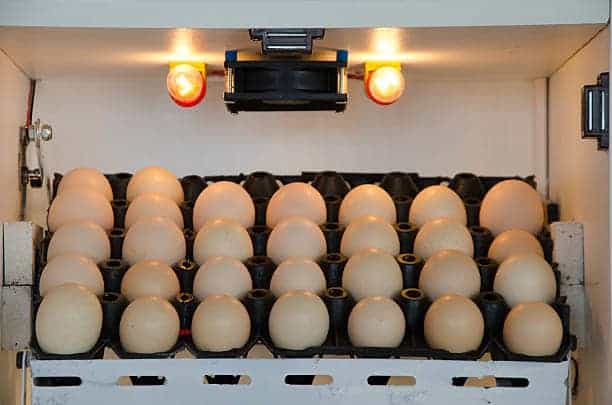
What Is The Ideal Temperature for Incubating?
The ideal temperature for incubating eggs is between 99 and 102 degrees Fahrenheit.
When it comes to incubating eggs, the temperature is critical. If the temperature is too high, the embryos will develop too quickly and may not survive. If the temperature is too low, the development will be slowed and the eggs may not hatch at all. The ideal temperature for incubating chicken eggs is between 99 and 102 degrees Fahrenheit. Eggs should be turned several times a day to ensure even heat distribution, and the humidity levels should be kept between 50 and 55 percent.
How Long Can Incubated Eggs Survive Without Incubator?
A chicken’s egg is able to survive without incubation for up to 7 days at normal room temperature. This is because the egg is protected by a hard shell, which prevents temperature volatility and maintains temperature bacteria and other contaminants from entering. The egg also has a built-in food supply, in the form of yolk, which can sustain the developing embryo for a short period of time.
After 7 days, the embryo will begin to experience developmental problems significantly and will not hatch successfully. For this reason, it is important to ensure that eggs are placed in an incubator within a week of being laid. By providing the ideal temperature and humidity levels, as well as turning the eggs regularly, an incubator will give the embryos the best chance of surviving and hatching into healthy chicks.
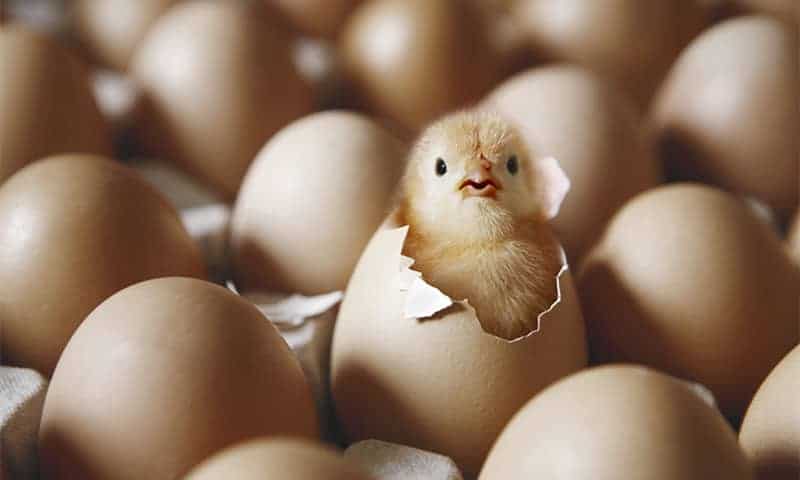
How Long Can An Incubated Eggs Be Cold? How Cold Can Incubating Eggs Survive? For How Long?
Incubating eggs of 7 days old can survive near-freezing levels for up to 24 hours without damage. The older the egg is the more likely it is to die and less survive at colder levels.
In the early phases of incubation, placing eggs below (say 25°C/77°F) does not do much harm whereas sitting eggs above that temperature. That means, eggs at a cold temperature do less harm than chilling eggs at or under freezing levels. Fertilized eggs can bear and remain healthy at freezing levels for 24 hours but not more.
This cooling does delay hatching but not as much as period of chilling so it is definitely some sort of relief. A period of chilling is actually a period of cooling incubation eggs for 30 minutes after 7 days of incubation.
How Long Can Fertile Eggs Be Cold? How Cold Can Chicken Eggs Get And Still Hatch?
When it comes to fertilized eggs, it is important to keep them at a consistent temperature of 55 and 65°F. Higher levels of tempurature will result in embryos developed abnormally and lower temperatures will result in mortality. But how cold is too cold and for how long?
In short, fertilized eggs can survive up to 70 °F cold temperature for as long as 7 days. However, under 28.4 °F (-2 °C) is too cold for fertile eggs and will kill the chick inside the egg.
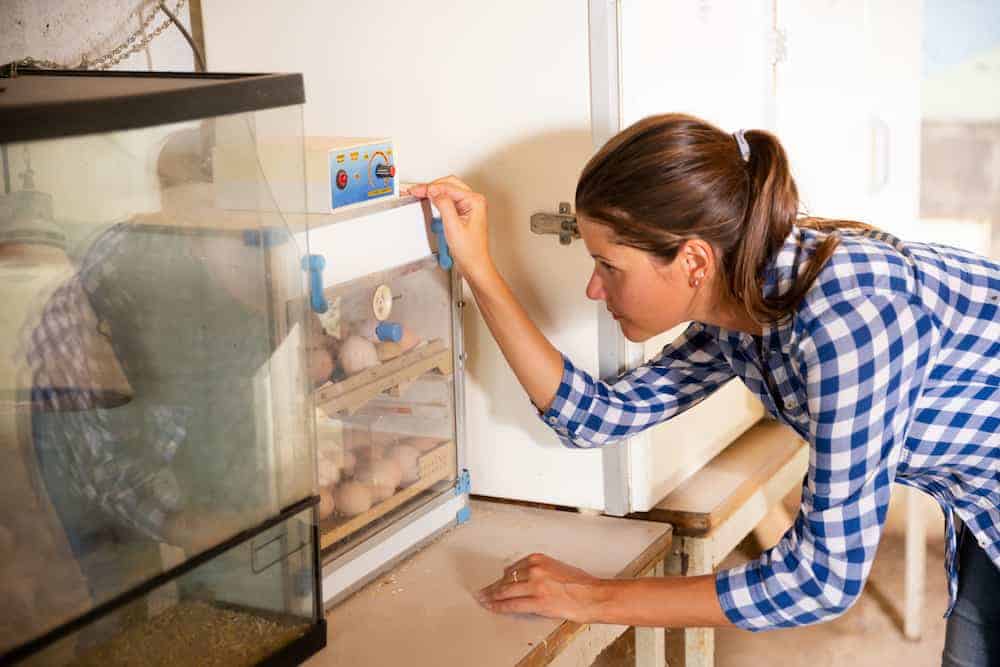
How Long Can Incubation Eggs Survive A Power Outage?
Most people have experienced a power outage at some point in their lives. Most of the time power outage causes will delay in hatching but It can also cause eggs to kill the embryo if the power outage is long. But how long can incubation eggs survive without power?
Fortunately, eggs can withstand a power outage at temperature of below 90°F for up to 18 hours. And as soon as the power comes back, just start the incubator and continue to incubate the eggs.
How Long Can Hen Leave Her Eggs For Before They Die?
Hens generally start sitting on their eggs to incubate them about 18 days before they hatch. During this time, they barely move at all in order to keep the eggs warm and protected. If a hen gets up for any reason, she only leaves the nest for 20 minutes or less before returning. However, there are occasions when hens are forced to leave their eggs for longer periods of time. If the temperature drops too low or rises too high, the hen will need to get off the eggs in order to regulate the temperature.
Or, if the nest is disturbed or if the hen is sick or injured, she may abandon her eggs. In these cases, the eggs will usually die if they are not incubated within 24 hours. Consequently, it is important for farmers to provide their chickens with a consistent environment and to check on them regularly to ensure that they are healthy and able to sit on their eggs.
In general, its safe for a broody hen to leave her eggs for up to 8 hours but 4 hours in cold weather.
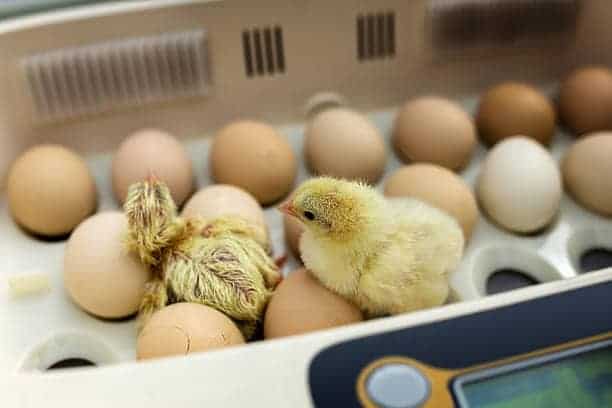
How Long Can Eggs Stay Out Of The Incubator?
Generally speaking, it’s safe to leave eggs out of the incubator for up to 7 days. After which, the hatchability drops to 0.5 to 1.5 per day.
If you are incubating eggs, it is important to be aware of how long they can stay out of the incubator before they become abnormal. In simple, incubating eggs can stay out of incubator for 7 days at most. If they are left out for longer than this, their internal temperature will begin to drop and they will not develop properly.
Just be sure to return the eggs to the incubator as soon as possible after taking them out.
How Long Can Incubate Eggs Last Without Incubation?
Surprisingly, eggs can actually last without incubation up to seven days without any problems. This is because the eggshell is very porous, which allows the egg to breathe and exchange gases with the outside air. However, after seven days, the egg will immediately begin to dry out and the quality of the embryo will start to decline. Therefore, it is best to incubate eggs as soon as possible after they are laid. If you must wait longer than seven days, it is important to keep the eggs in a cool, moist environment to prevent them from drying out.
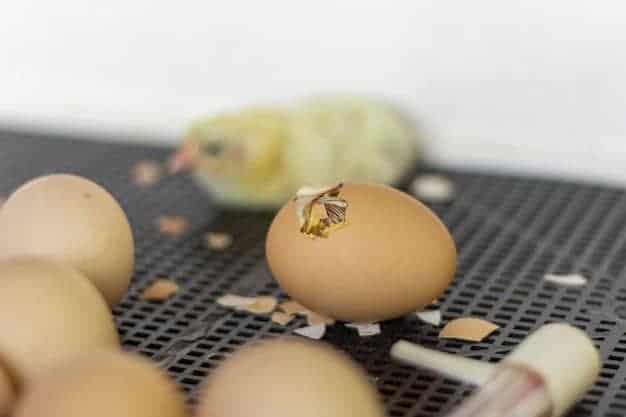
Why Are Chicken Eggs Not Hatching After 23 Days?
Chicken eggs typically take 21 days to hatch, but it can take longer if the conditions aren’t ideal. For example, if the temperature is too low or too high, it can prevent the chick from developing properly and delay the time of hatching. Similarly, if the humidity is not at the right level, it can cause the egg to lose too much or too little moisture, which can also interfere with development.
Infertility can occasionally be an issue, as can infection or illness in the mother hen. In general, as long as the eggs are kept at a consistent temperature and humidity level, they eggs should hatch within 21 days. But if it doesn’t here’s what to do.
What To Do If Chicken Eggs Are Not Hatching After 24 Days?
If you’re incubating chicken eggs and 24 days have passed without any hatching, don’t despair just yet. There are a few things you can do to check on the status of your eggs and find the chance of success.
- First, do a candling check: turn off the incubator, open it up, and hold a lit candle near each egg in turn. If the egg is viable, you should see movement inside. If not, it’s likely that the embryo inside has died.
Candling is the process of holding a light up to an egg in order to check for development. If the egg appears dark or opaque, it is likely that the chick has died and the egg should be removed from the incubator.
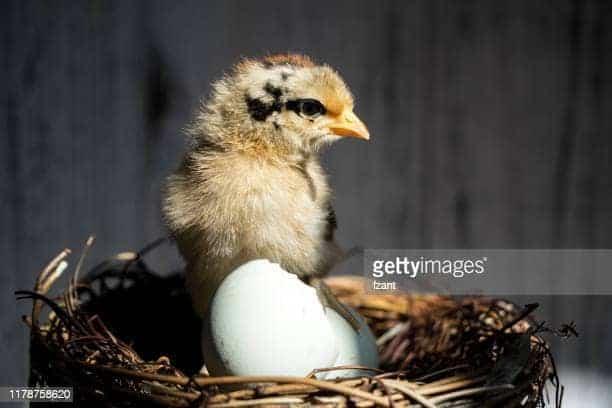
- Next, check the incubator settings. Make sure that the temperature and humidity are still at the correct levels for hatching. If they’ve fallen outside of the ideal range, it could be preventing the eggs from successfully hatching.
- Finally, if there are any eggs that look like they might be close to hatching, carefully pip the air sack on the side of the egg. This will help ensure that the chick can hatch successfully. With these tips in mind, you should be able to get your chicken eggs to hatch successfully.
- Another possibility is that the incubator itself is not set properly. The incubator should be kept at a consistent temperature between 99 and 102 degrees Fahrenheit. Finally, if an egg does hatch but the chick seems weak, it may be because the air sac was not properly punctured during candling. By following these simple steps, farmers can ensure that their chicken eggs have the best chance of hatching successfully.
You may as well try warm water trick for hatching for helping the eggs with hatching.
How Do I Know If An Egg Is Alive Or Dead?
One of the most common questions I get asked is “how do I know if a egg is still alive?” Here are a few things you can look for:
The best way to tell if an egg is still alive is to candle it. To do this, you will need a dark room and a good flashlight. hold the egg up to the light and look through the shell. If you see the neck turned up toward the top of the egg, its probably alive. In the early stages, if you see blood vessels or a beating heart, the egg is still alive. If the inside of the shell looks dark and empty, the embryo has likely died.
It’s also worth noting that even healthy eggs sometimes don’t hatch. If you have followed all of the incubation instructions but your eggs still don’t hatch, don’t despair! There are many possible reasons why this could happen and it doesn’t necessarily mean that you did something wrong. Try again next time and hopefully you will have better luck.


